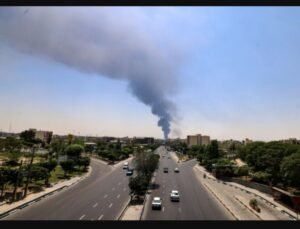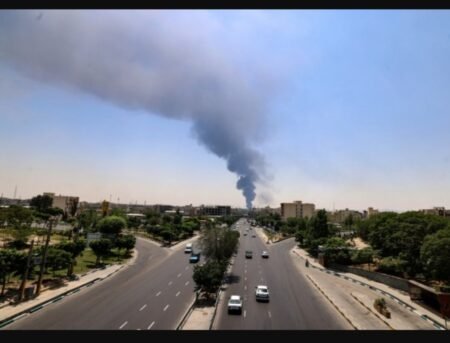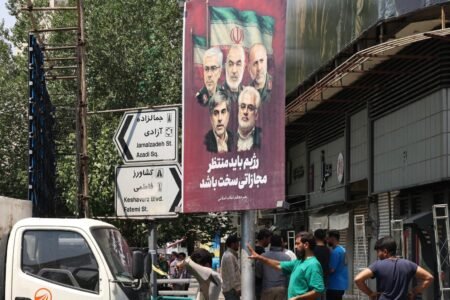Published by https://m10news.com |Dayo Ade Olusola | Category: Travel & Security
As UK holidaymakers plan summer getaways, the Foreign, Commonwealth and Development Office (FCDO) has updated its travel guidance to reflect growing global tensions and security risks, including new red alerts for Israel and Iran.

The FCDO currently monitors 226 countries and territories, offering critical guidance on travel safety. In its latest June 2025 update, 73 of these destinations contain areas flagged with warnings against “all travel” or “all but essential travel” due to armed conflict, terrorism, civil unrest, or environmental hazards.
Israel and Iran Now Red-Listed Following Escalation
On 15 June 2025, the UK government added Israel and the Occupied Palestinian Territories to its highest risk category, advising against all travel, following a dramatic escalation in hostilities between Israel and Iran. Iran has also joined the red list after a series of retaliatory missile strikes originating from Tehran.

Importance of Checking Travel Advice Before Departure
The FCDO cautions that travel insurance may be rendered invalid if travellers visit areas against official advice. With over 50 million trips made by UK nationals annually, most of them incident-free, the government urges the public to stay informed through its website before making final bookings.
Countries With a Blanket Ban on Travel
As of June 2025, the FCDO advises against all travel to the following ten countries:
- Afghanistan
- Belarus
- Haiti
- Iran (added 15 June 2025)
- Israel and the Occupied Palestinian Territories (added 15 June 2025)
- Russia
- South Sudan
- Syria
- Yemen
Countries With ‘No-Go’ Zones: Travel Banned in Specific Areas
Numerous countries remain partially restricted. These include areas with ongoing military conflict, terrorism risks, or border instability. Examples include:
- Algeria: Zones near borders with Libya, Mali, Niger, and Tunisia.
- Armenia & Azerbaijan: Conflict areas along their shared border.
- Burkina Faso: All travel advised against outside Ouagadougou.
- Ethiopia: Includes Tigray, Amhara, and several other restive regions.
- Egypt: North Sinai, Western Desert, and Libya border zones.
- India: Kashmir and areas along the Pakistan border.
- Iraq: Many areas outside the Kurdistan region.
- Lebanon: Large swaths of the country, including Tripoli and border zones.
- Nigeria: Northeastern, northwestern, and southeastern regions flagged.
- Turkey: Syrian border areas.
- Ukraine: Includes Crimea and zones within 50km of Belarus.
- Venezuela: Border zones with Colombia and Brazil.
Other countries with regional restrictions include Burundi, Chad, Cameroon, Democratic Republic of the Congo, Libya, Mali, Myanmar, Niger, and Pakistan.
Countries With ‘All But Essential Travel’ Warnings
A further three destinations are under broad ‘all but essential travel’ guidance:
- Mayotte
- New Caledonia
- North Korea
Countries With Partially Restricted Travel
Dozens of nations are subject to partial warnings for specific provinces or districts. These include:
- Bangladesh: Chittagong Hill Tracts
- Brazil: Amazonas State
- Colombia: Border areas and parts of the Pacific coast
- Mexico: Multiple states including Sinaloa, Guerrero, and Michoacán
- Thailand: Southern regions near the Malaysian border
- Tunisia: Areas near Algeria and parts of the south
- Uganda: Zones near Queen Elizabeth National Park
- Tanzania: Border areas near Mozambique
- Papua New Guinea: Hela and Southern Highlands provinces
Each of these warnings is backed by specific intelligence on local risks such as terrorism, armed conflict, kidnapping threats, or natural hazards.

How Travellers Can Stay Informed
The FCDO provides real-time updates through its official travel advice website, including tailored alerts for each destination. Travellers are strongly advised to:
- Check for country-specific updates before travel
- Register with the embassy if travelling to high-risk areas
- Ensure travel insurance covers emergency repatriation
- Refrain from travelling to areas flagged as ‘no-go’ unless unavoidable
With the global geopolitical climate shifting rapidly, especially in the Middle East, British nationals are reminded that travel decisions should not be made based on budget and weather alone. Safety and government guidance must take precedence—especially when warnings may affect legal protections and insurance coverage.
For more updates on global travel advisories and security news, visit M10News.com.
Published by: https://m10news.com
Written by: Dayo Ade Olusola
Category: Travel & Security














